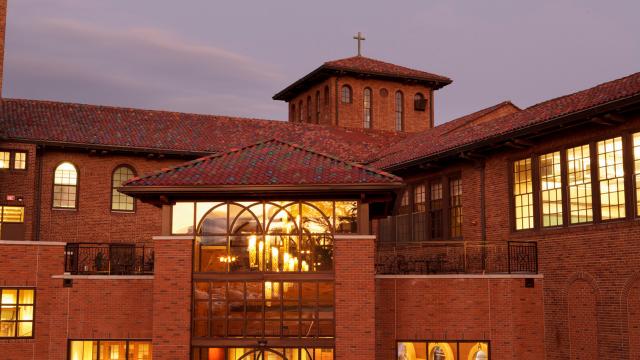There are a few situations that require an immediate response when a student is experiencing a mental health crisis:
- When a student is in significant emotional distress and his/her ability to function is seriously impaired.
- When a student poses a threat to him/herself or others.
- When a student makes overtly suicidal comments; e.g. Referring to suicide as a current option or has a plan and the means to carry out the plan.
- When a student is experiencing impaired speech or garbled, disjointed thoughts, bizarre or strange behavior that is inappropriate to the situation; e.g. talking to “invisible people” or exhibiting paranoid thinking.
Call 911 and then alert Public Safety (610-796-8350) when a student demonstrates:
- High levels of irritability, including unruly, aggressive, or violent behavior.
- A serious and imminent threat of harm to themselves, others or property
During Office Hours
Please contact the Medical and Counseling Center if a crisis occurs during office hours at 610.568.1467. Our staff will work to determine the best course of action for the patient’s needs.
After Hours Emergencies
- For life-threatening emergencies, please call 911 and then alert Public Safety at 610-796-8350.
- Non-Life-Threatening Psychological Emergencies: For non-life threatening psychological emergencies (suicidal thoughts, risk of violent behavior, loss of emotional control, impairment of thinking), the Medical and Counseling Center provides 24-hour crisis care year-round. Call the Medical and Counseling Center 610-568-1467 and stay on the line. Choose the prompt for "mental health crisis" and you will be connected with an on-call counselor.
Is It An Emergency?
Below are signs and symptoms of a student in distress but not in any immediate danger. Not all of these symptoms must be present to indicate that a student needs help. Telling the difference between an individual's personality style and the symptoms of a problem can be quite difficult. The "symptoms" described are behaviors that lead to problems for the individual in and outside the classroom and thus are reasons for concern. If you are unsure as to whether someone's behavior is something to be concerned about, please contact the Medical and Counseling Center at 610.568.1467 and we can help you determine if something needs to be done.
- Changes in Mood
- Sadness/crying/depressed
- Angry/aggressive/fighting
- Disruptive
- Excessive giddiness/”manic”
- Irritable
- Anxious
- Changes in Behavior
- Missing Class
- Not completing classwork
- Loss of motivation
- Bizarre, unusual, inappropriate behavior
- Speech or thoughts that are confusing, hard to follow
- Sleeping more or less
- Changes in Social Relationships
- Isolating\withdrawing from others
- Overdependent on others, clingy, draining
- Excessive partying, social life interfering with other areas of life
- Talking to family less or more
- Not responding to texts/social media
- Posting concerning comments on social media
- Changes in Personal Appearance
- Poor hygiene
- Dressing differently
- Less interest in appearance or preoccupied with appearance
- Weight loss or gain
- Increased Physical Complaints
- Headaches
- Doesn’t feel well
- Nausea
- Stomach/gastrointestinal issues
- Fatigue
- Increased alcohol/substance use
- Drinking more alone
- Drinking more/excessively with others
- Increased amount or frequency of substance use
- Use of different alcohol/substances
- Never used at all, but now using
- Guidelines for Interactions
- Talk privately to the student
- Listen carefully
- Show interest and concern
- Clarify what they are saying by repeating back the essence of what they have told you
- Talk in noncritical, nonjudgmental ways
- Consider the Counseling Center as a resource and discuss a referral with the student
- If the student resists help and you are worried, call the Medical and Counseling Center at 610.568.1467 and ask for a counselor to discuss your concerns.
- Involve yourself only as far as you feel comfortable. Extending oneself can be a gratifying experience when kept within realistic limits.
- Use “” to share your concerns and request additional support for a student. Reports are forwarded to the Executive Director of Community Standards. Outreaches are made to the student of concern within 1-2 business days. This type of report should NOT be used in the case of imminent harm to self or others or any other emergency.


